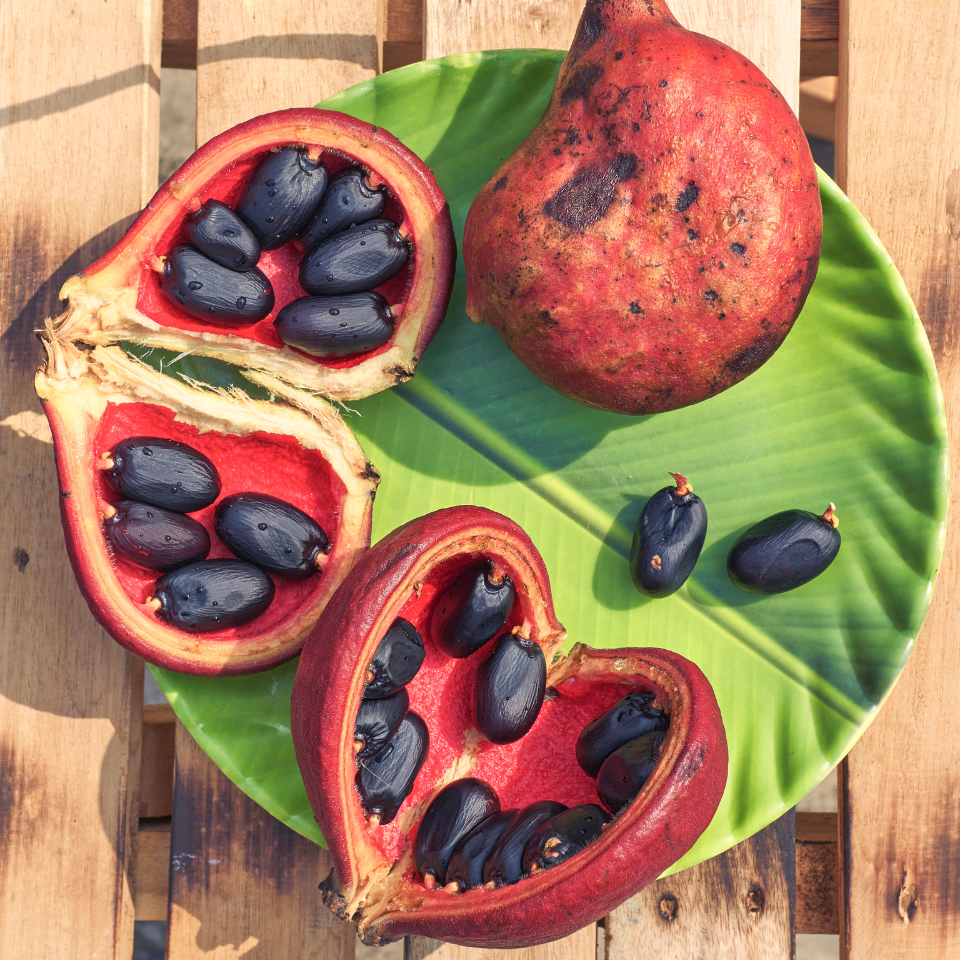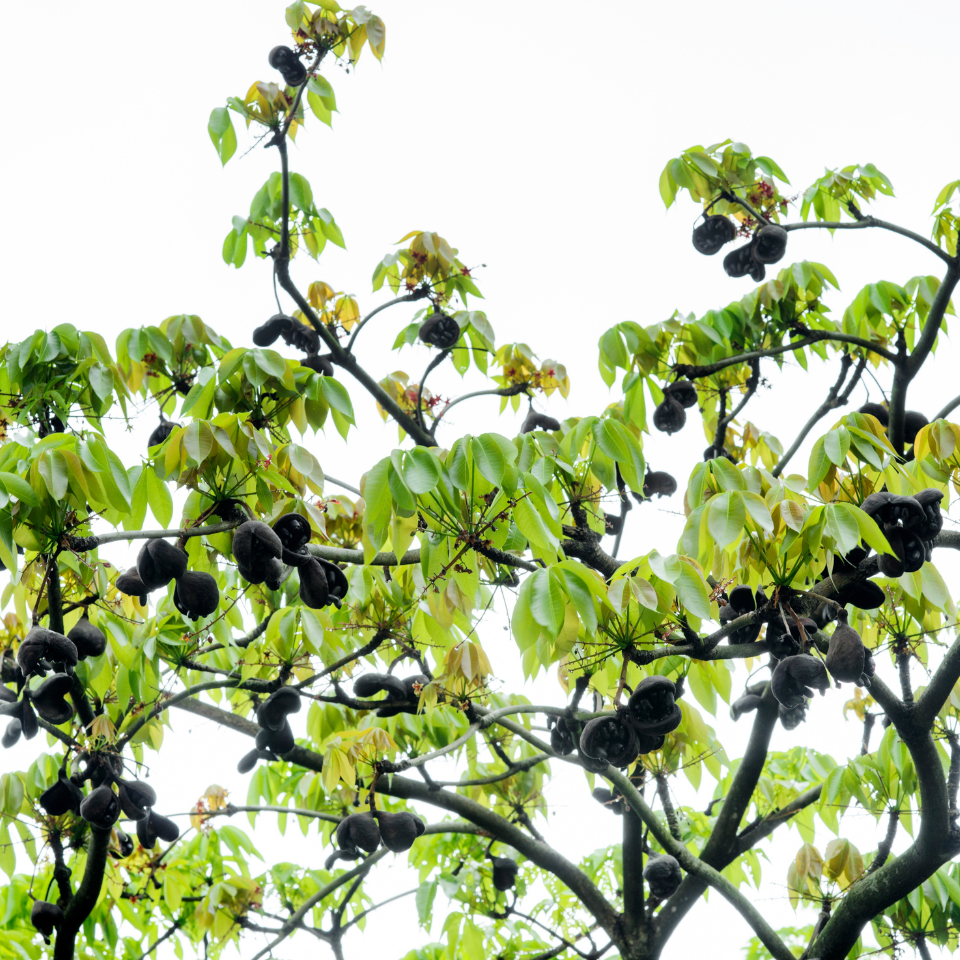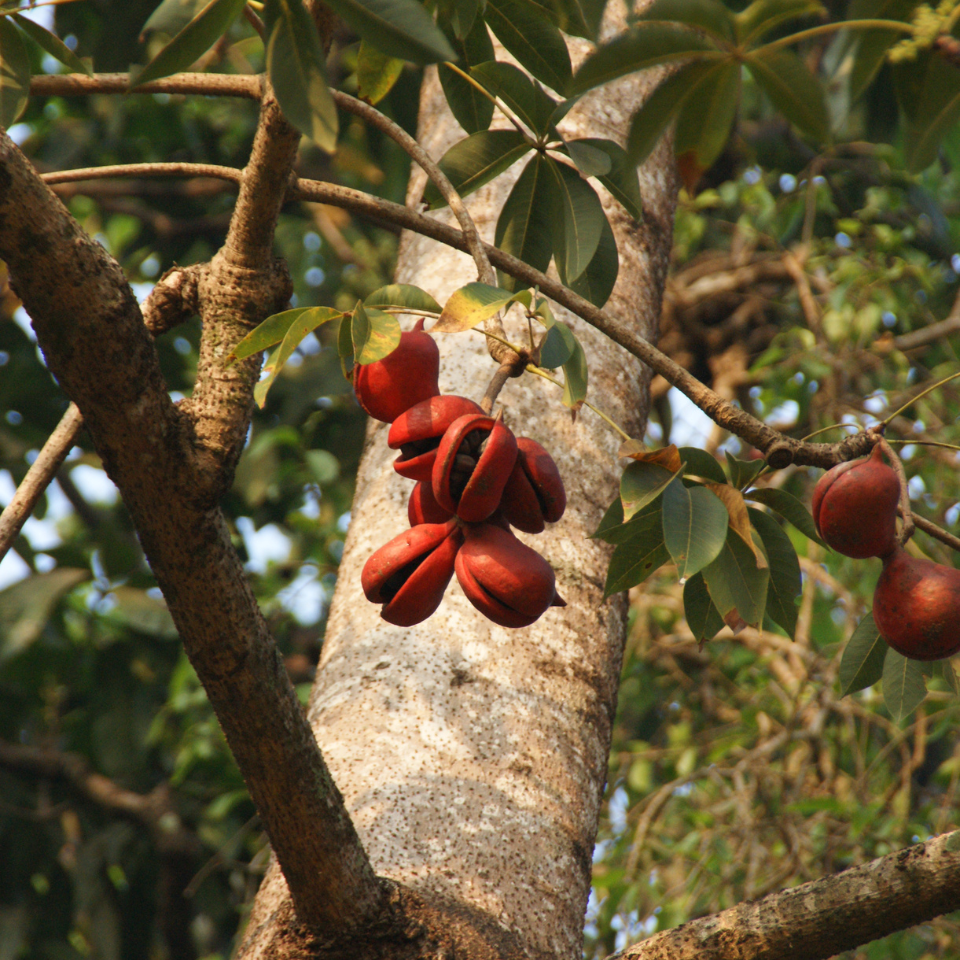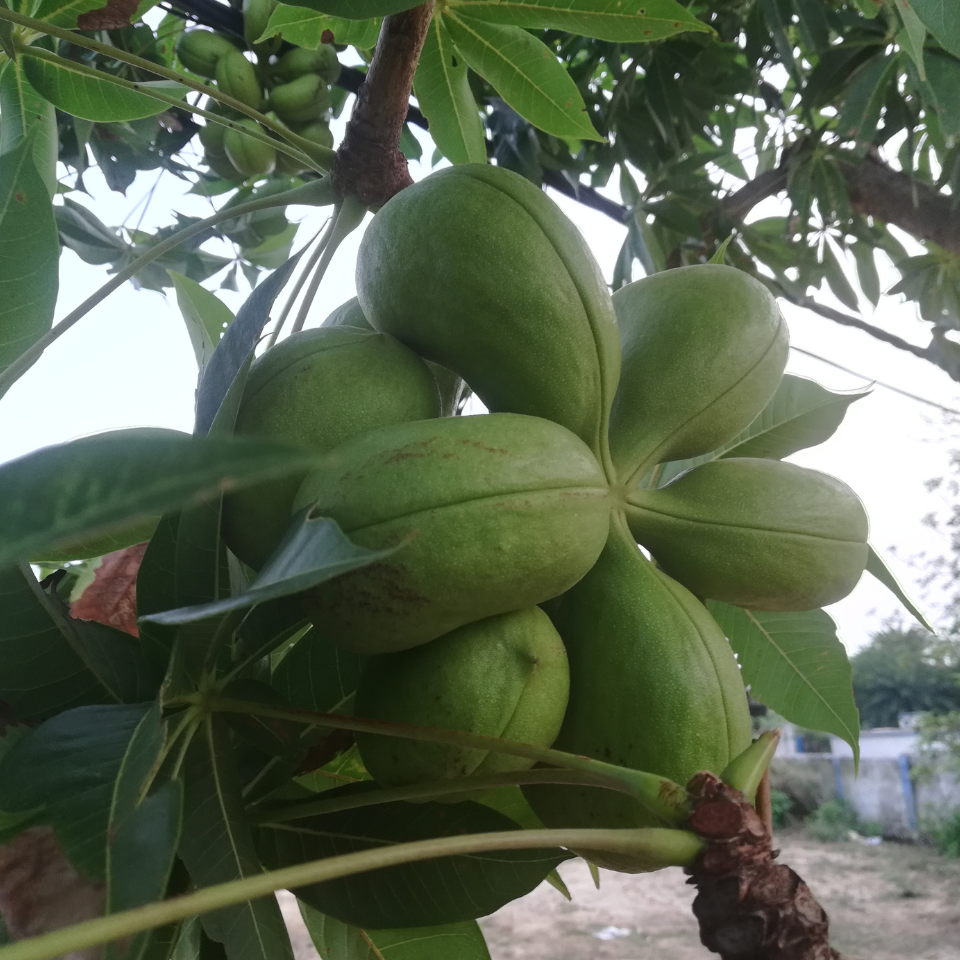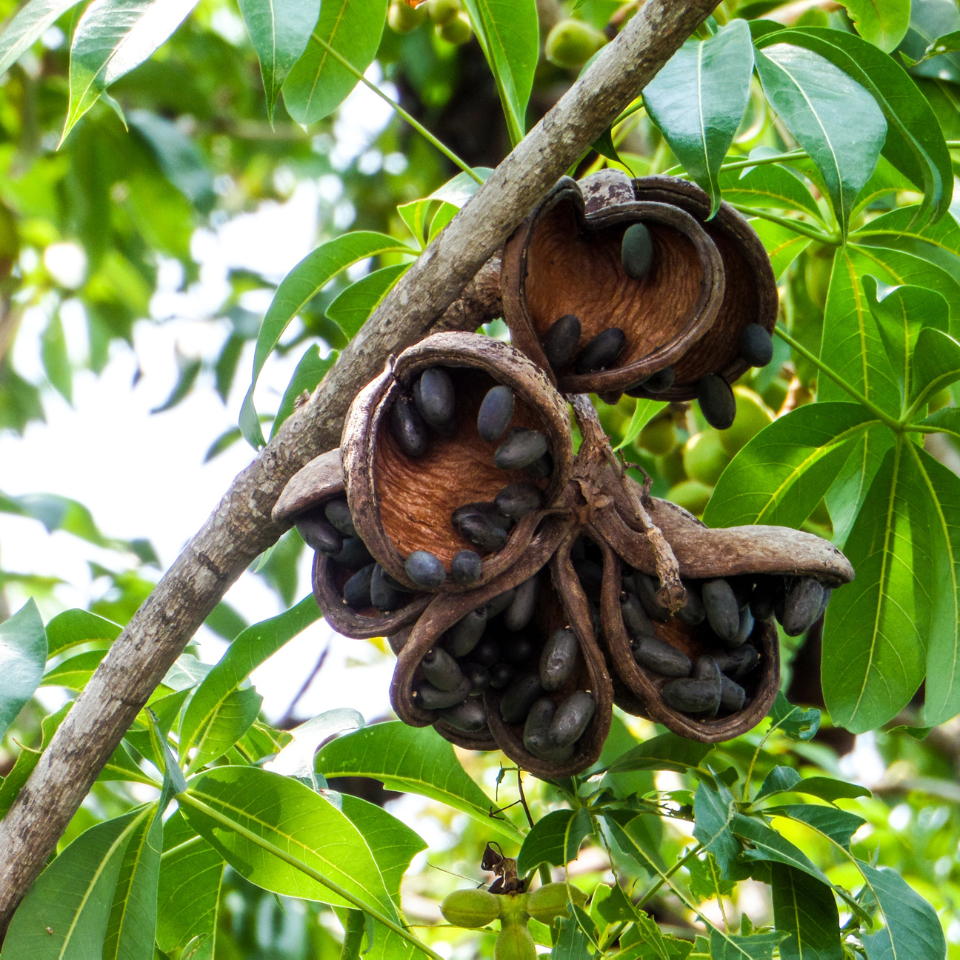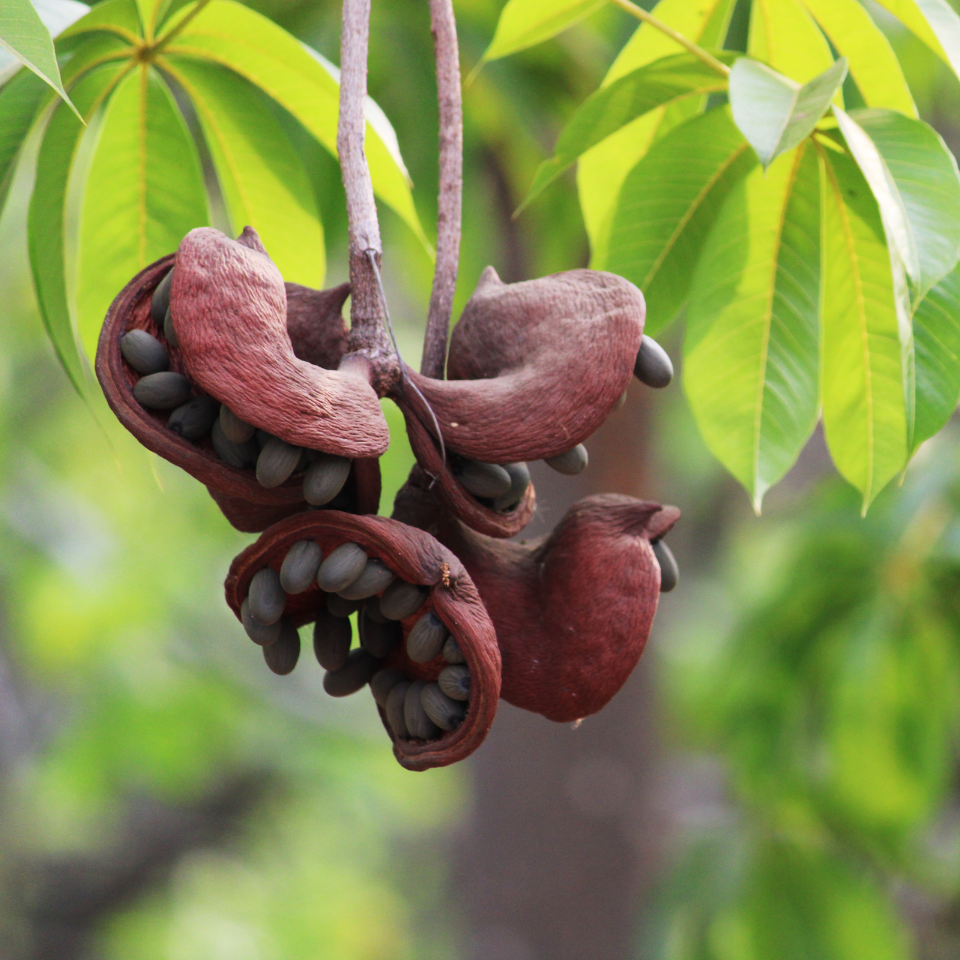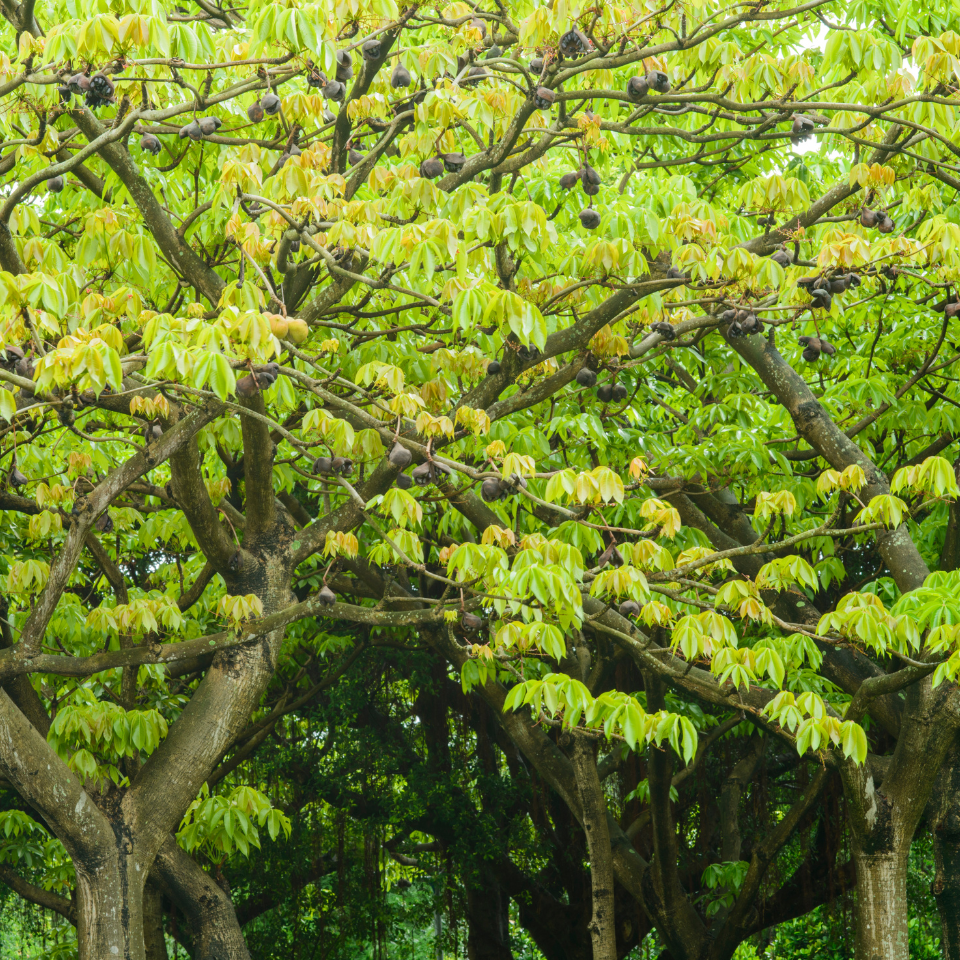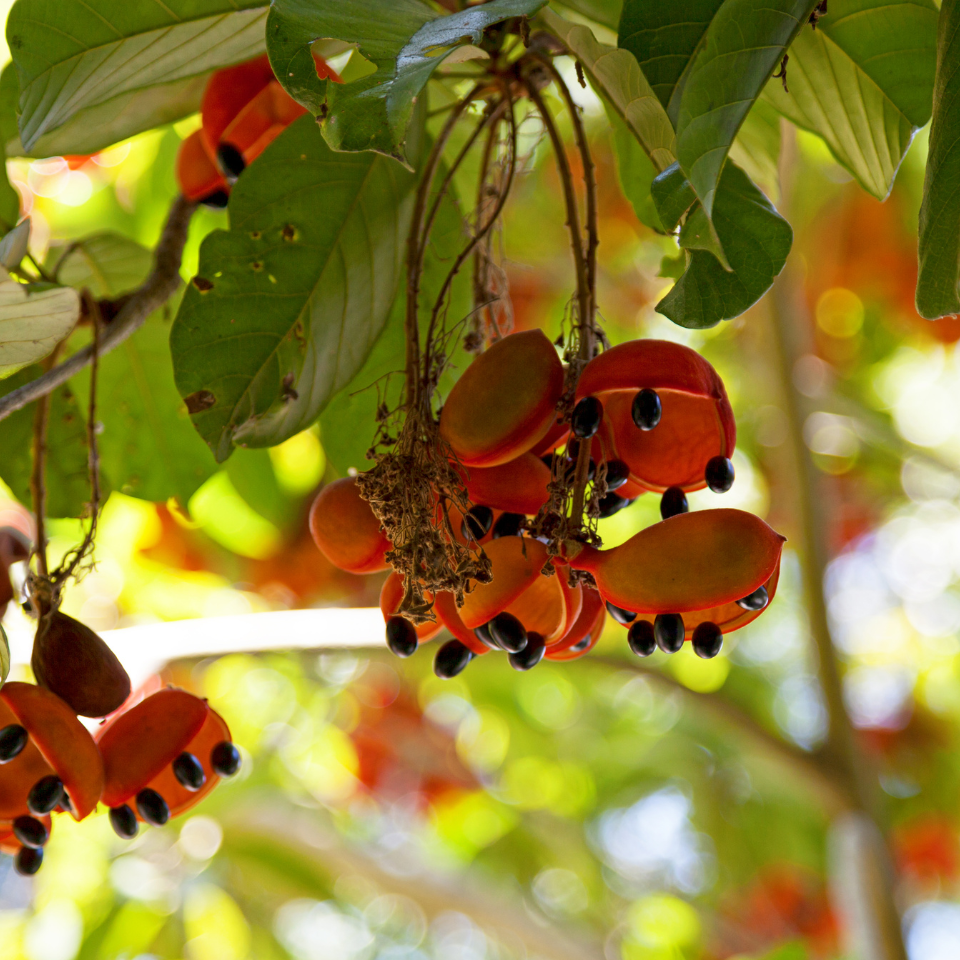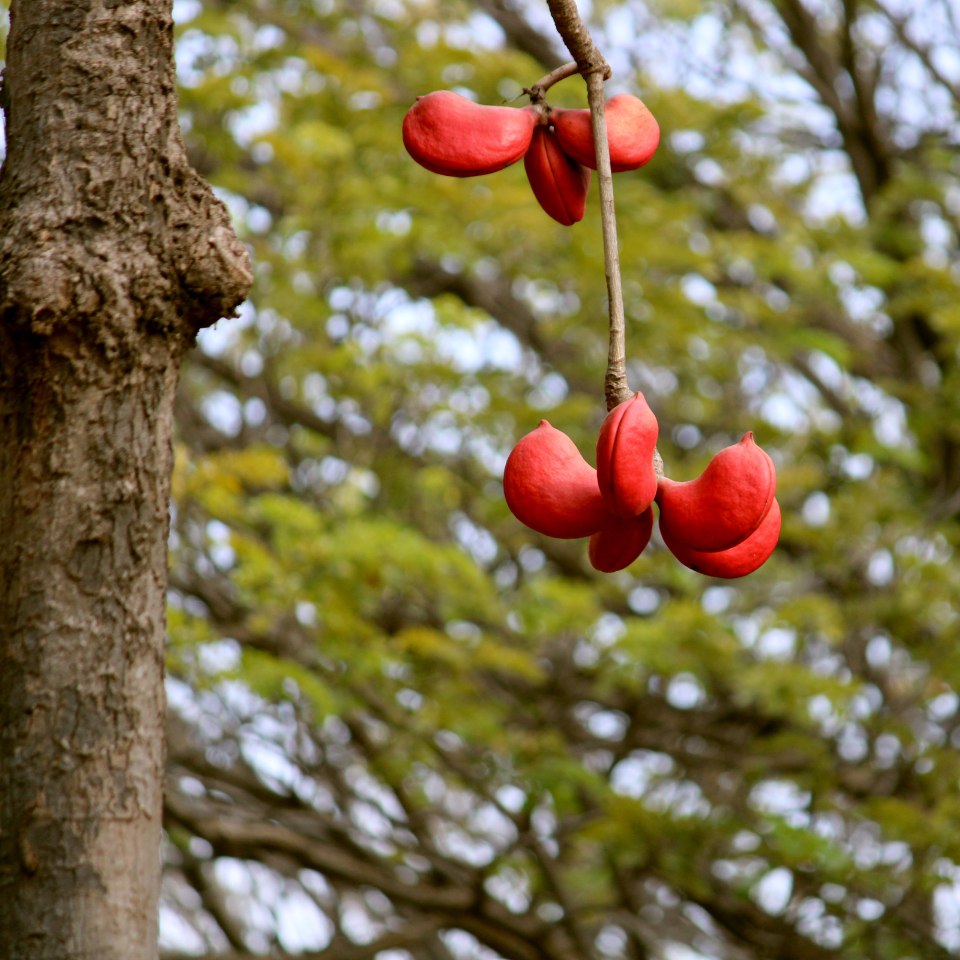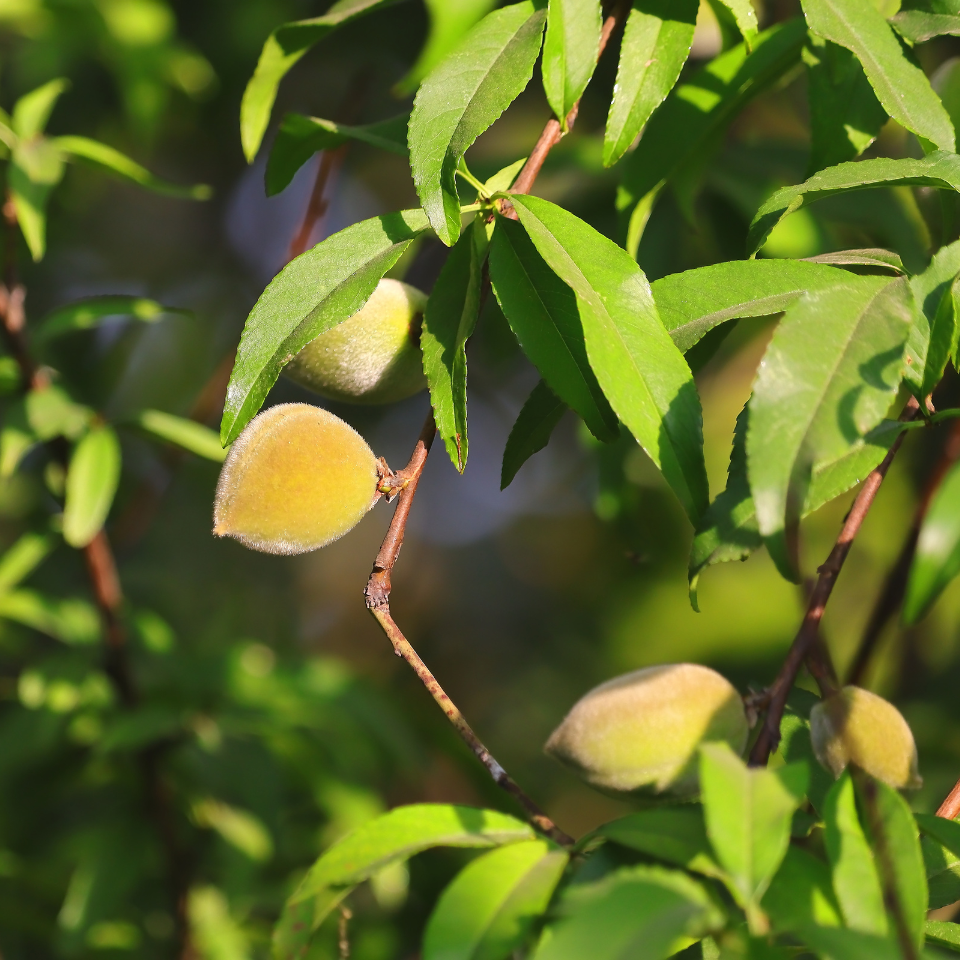Sterculia foetida (Jungli Badam, Wild Almond, Indian Almond) Seeds
Sterculia foetida, commonly known as Jungli Badam, Wild Almond, or Indian Almond, is a fast-growing deciduous tree from the Malvaceae family. Native to tropical Asia, Africa, and Australia, it is known for its striking appearance, large lobed leaves, and distinctive star-shaped fruits containing edible seeds. Despite its slightly unpleasant smell when flowering (hence the name foetida), this tree is highly valued for its ecological and economic uses.
Characteristics:
• Plant Description: Sterculia foetida grows up to 30 meters tall, with a straight trunk and a broad, spreading crown. Its large, glossy, palmate leaves are deeply lobed and turn yellow before falling. The tree produces clusters of small, reddish flowers followed by large, star-shaped woody pods containing almond-like seeds.
• Seeds: The seeds are black, glossy, and encased in hard pods. They are edible when roasted and resemble traditional almonds in flavor.
• Growth Habit: A drought-tolerant and fast-growing tree that thrives in warm climates.
• Climate Adaptability: Prefers tropical and subtropical climates, tolerating high temperatures and a range of soil types, including sandy and loamy soils.
Uses and Benefits:
• Edible Seeds: The seeds are roasted and consumed as a nutty snack, rich in oils and nutrients.
• Timber: The wood is lightweight and used for crafting, furniture, and construction.
• Ornamental Value: With its striking foliage and large fruits, the tree is often planted as a decorative shade tree in gardens, parks, and along roadsides.
• Shade Tree: Its dense canopy provides excellent shade, making it ideal for plantations and agroforestry systems.
• Ecological Role: Provides habitat and food for wildlife, particularly birds and squirrels. Its large leaves contribute to soil enrichment as they decompose.
• Medicinal Properties: Traditionally used in herbal remedies for digestive and inflammatory issues.
Cultivation:
• Sowing: Soak seeds in warm water for 24 hours to improve germination. Sow in well-drained soil in nursery beds or directly in the field. Lightly cover with soil and water regularly. Germination occurs within 2–4 weeks.
• Growth Conditions: Prefers full sun and thrives in well-drained soils with moderate moisture. It is drought-tolerant once established.
• Maintenance: Requires minimal care. Regular pruning helps shape the tree and remove dead or damaged branches.
Unique Features:
• Edible and Nutritious Seeds: The seeds, known as “jungli badam,” are a valuable food source in local communities.
• Resilience: Adaptable to challenging environments, including drought-prone and nutrient-poor soils.
• Cultural and Economic Importance: The tree is an integral part of many traditional landscapes and offers multiple benefits, from food to timber.
Shipping:
Available for shipping within India and worldwide. Orders are typically dispatched within 1–2 weeks.
From Deodar Seeds Company.
Sterculia foetida, commonly known as Jungli Badam, Wild Almond, or Indian Almond, is a fast-growing deciduous tree from the Malvaceae family. Native to tropical Asia, Africa, and Australia, it is known for its striking appearance, large lobed leaves, and distinctive star-shaped fruits containing edible seeds. Despite its slightly unpleasant smell when flowering (hence the name foetida), this tree is highly valued for its ecological and economic uses.
Characteristics:
• Plant Description: Sterculia foetida grows up to 30 meters tall, with a straight trunk and a broad, spreading crown. Its large, glossy, palmate leaves are deeply lobed and turn yellow before falling. The tree produces clusters of small, reddish flowers followed by large, star-shaped woody pods containing almond-like seeds.
• Seeds: The seeds are black, glossy, and encased in hard pods. They are edible when roasted and resemble traditional almonds in flavor.
• Growth Habit: A drought-tolerant and fast-growing tree that thrives in warm climates.
• Climate Adaptability: Prefers tropical and subtropical climates, tolerating high temperatures and a range of soil types, including sandy and loamy soils.
Uses and Benefits:
• Edible Seeds: The seeds are roasted and consumed as a nutty snack, rich in oils and nutrients.
• Timber: The wood is lightweight and used for crafting, furniture, and construction.
• Ornamental Value: With its striking foliage and large fruits, the tree is often planted as a decorative shade tree in gardens, parks, and along roadsides.
• Shade Tree: Its dense canopy provides excellent shade, making it ideal for plantations and agroforestry systems.
• Ecological Role: Provides habitat and food for wildlife, particularly birds and squirrels. Its large leaves contribute to soil enrichment as they decompose.
• Medicinal Properties: Traditionally used in herbal remedies for digestive and inflammatory issues.
Cultivation:
• Sowing: Soak seeds in warm water for 24 hours to improve germination. Sow in well-drained soil in nursery beds or directly in the field. Lightly cover with soil and water regularly. Germination occurs within 2–4 weeks.
• Growth Conditions: Prefers full sun and thrives in well-drained soils with moderate moisture. It is drought-tolerant once established.
• Maintenance: Requires minimal care. Regular pruning helps shape the tree and remove dead or damaged branches.
Unique Features:
• Edible and Nutritious Seeds: The seeds, known as “jungli badam,” are a valuable food source in local communities.
• Resilience: Adaptable to challenging environments, including drought-prone and nutrient-poor soils.
• Cultural and Economic Importance: The tree is an integral part of many traditional landscapes and offers multiple benefits, from food to timber.
Shipping:
Available for shipping within India and worldwide. Orders are typically dispatched within 1–2 weeks.
From Deodar Seeds Company.
Sterculia Foetida, Jungli Badam seeds - 10
- Brand: Deodar Seeds
- Product Code: DEC7
- Availability: In Stock
₹570.00

